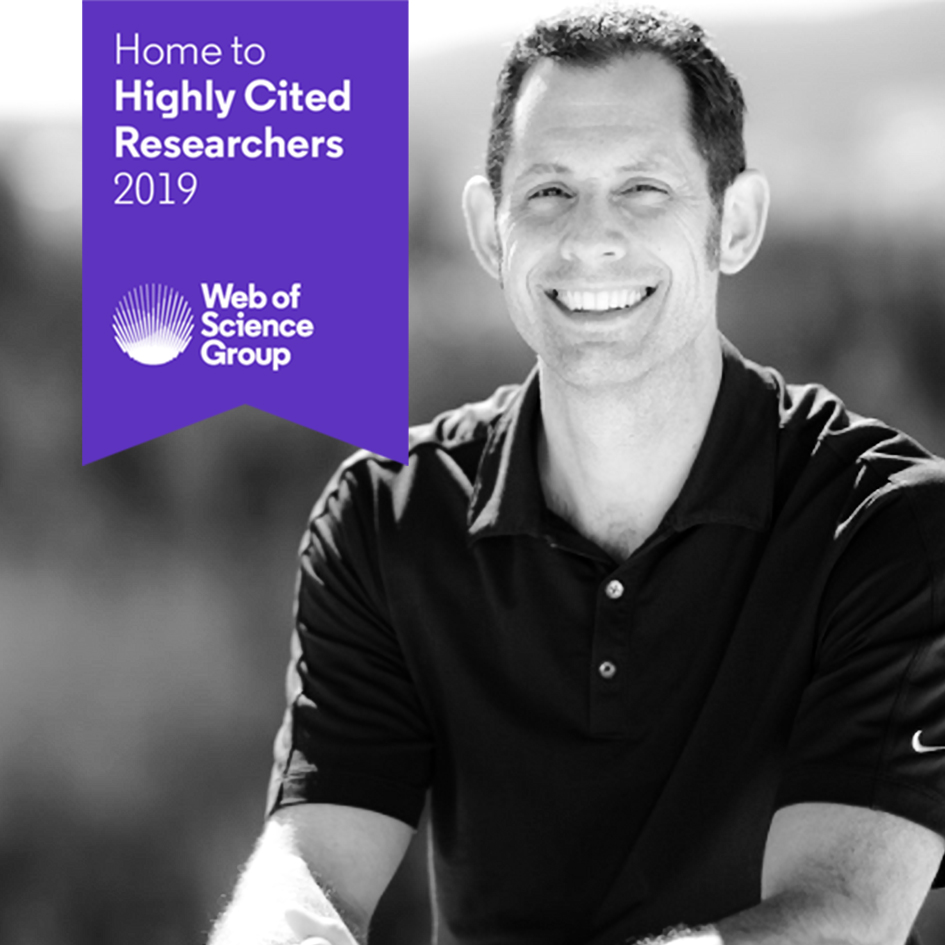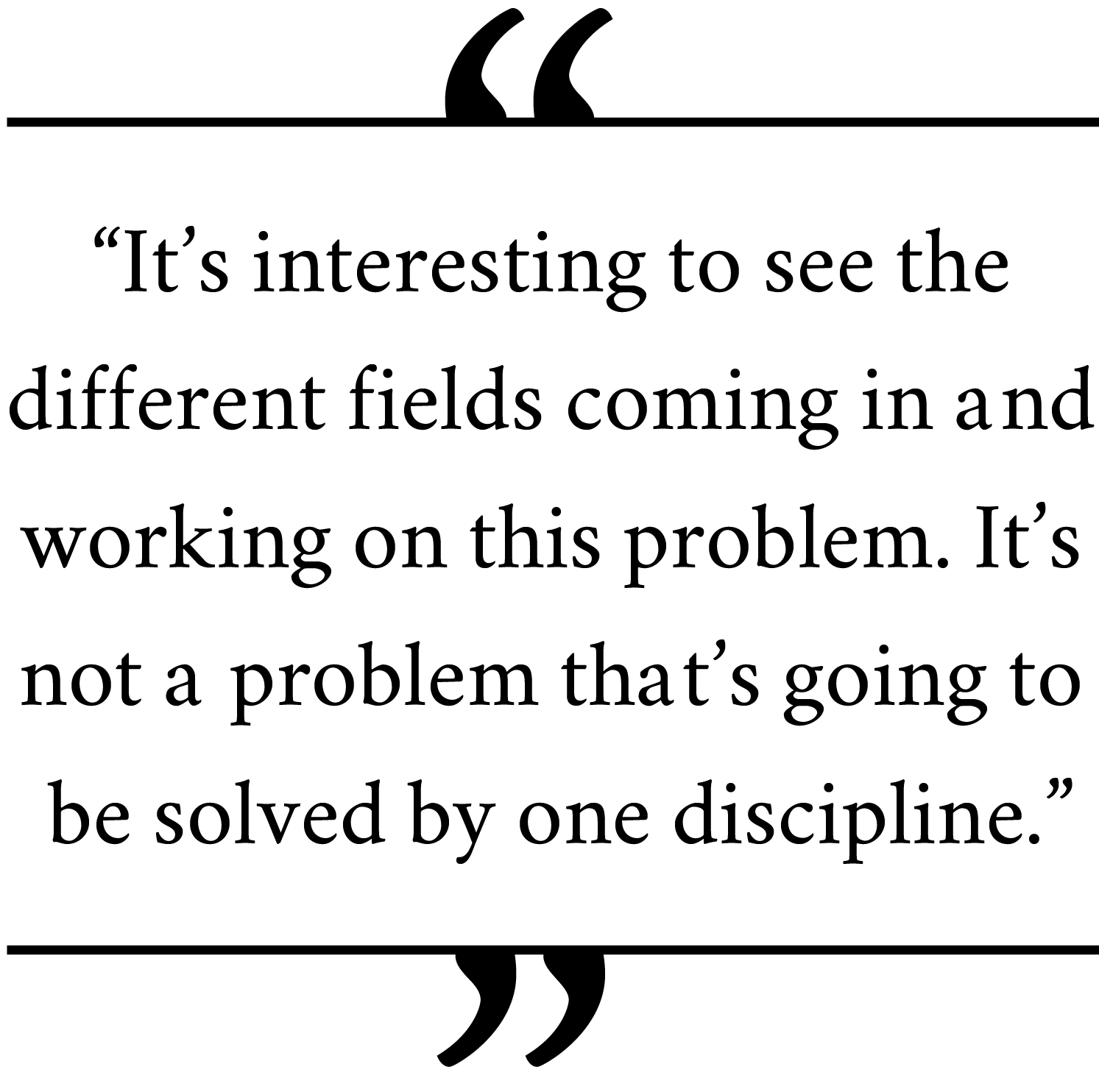2019 Highly Cited Researcher Series: John Abatzoglou
January 21, 2020
As a researcher, learning new things is absolutely limitless. In John Abatzoglou’s opinion, this is both the best and worst thing about the profession. Abatzoglou is an associate professor in the Geography Department, and one of four faculty from the University of Idaho recognized by Web of Science Group as a highly cited researcher in 2019.
Climate and Change: The Things We Care About
As a climatologist, Abatzoglou says his work is split into two categories. “About 50% of the research questions that I tackle involve the basic understanding of weather and climate across different time scales—ranging from individual events to year-to-year variability to change over time—and understanding that as part of a system. The other half, which has been a growing proportion of my research, is understanding how all of that variability and changes thereof have impacts to things that we care aboutâ€. Abatzoglou’s work encompasses both the theoretical perspective and the implied questions that are introduced—why do we care about weather and climate? It also incorporates understanding impacts to outside disciplines such as agriculture, ecology, fire resources, and human health. All of his research, both theoretical and implied, is computational based.
Abatzoglou says that the scope of possibilities can be intimidating; “it almost grows a little bit too much. But I think that’s what keeps things interesting and certainly what appeals a lot to the students that I work with. They’re less interested in understanding why the climate system is the way it is, but they want to understand things that they care aboutâ€. Like many teachers, he finds himself learning and growing as he works with student researchers. “I don’t tell my students ‘work on this’, I work with them to figure out ‘what are you interested in? What could you see yourself being passionate about? Let’s work on the science and methodology.’ So that’s fun. It takes me for a little bit of a ride and I learn with themâ€.
Abatzoglou and his students are conducting their research with the goal of better understanding the climate system and how sensitive so many things are to climate variability. With this understanding, they hope to “provide information for decision-makers to plan accordingly—whether that’s to figure out how to adapt or to mitigateâ€. Abatzoglou affirms that “In the absence of this information, we are sitting ducks in terms of being victims to both natural climate variability, as well as human-caused climate change. With information, we can make decisions to avoid some of the more dire impacts.â€
Unlike many other faculty members, Abatzoglou doesn’t utilize IBEST to submit grant proposals, but the infrastructure remains critical to his research. “All my work is computational-based, and all of my computations are run by IBEST. There are servers that I purchased that are maintained and serviced by the CRC and the broader IBEST group, and that’s been essential to the work that we do.â€
Generating Citations and Measures of Value
When the Highly Cited Researcher list came out in November, Abatzoglou initially didn’t realize what it meant. He laughs as he recalls, “I had gotten some email that looked like spam from this Highly Cited list. I mean, it looks like all the other spam we get. And then this official-looking thing came out, and I went, ‘oh, maybe this isn’t spam. Maybe I shouldn’t have ignored that.’†He appreciates being named, though, and finds it interesting that there are three other researchers from the University of Idaho named as well, and all from the College of Science. “There’s some point of pride there from the university’s perspective; that they’re doing something right.â€
As a researcher, Abatzoglou considers himself more diversified than some. Instead of one paper that has been cited thousands of times, he has five published papers that all have been cited 400-500 times each. His involvement with climate goes back to before it became widely examined by different disciplines. “It’s interesting to see the different fields coming in and working on this problem. It’s not a problem that’s going to be solved by one discipline.â€

While he does keep a general track of who is citing his work, Abatzoglou emphasizes that a high number of citations isn’t necessarily a way of measuring success. People cite things “either because they like it or because they hate itâ€. He thinks that his area of research becoming a more widely scrutinized topic plays a part in his high volume of citations. “From my perspective, it’s a byproduct of working on a topic that people are really interested in. It’s basically luck and hard work coming together.†He acknowledges his fellow researchers, “I think a lot of people work just as hard, but they may not be working on a topic that resonates with a growing audienceâ€.
“From the perspective of people that are doing research, you can publish things that are really good, but they just may not garner attention for one reason or another.†A paper having a lot of citations doesn’t necessarily mean that it is a better paper, it “just somehow resonated with a broader audience or got out there in some fashion.†Some people put in a lot of time and effort to get their publications recognized, through the media or otherwise. “Maybe that work comes back in terms of citations and hate mailâ€, jokes Abatzoglou “those go hand in hand with this topic.â€
Being a Researcher: Looking Forward and Back
Considering the path that his studies have taken him on, Abatzoglou says that his research is always evolving. “The things that I’m doing today, I could have seen myself doing them five years ago, but I don’t think I envisioned the cascading number of topics that I’d be working on.†He appreciates working in a geography department because it allows him and other faculty to “get out of our comfort zone and work on topics that are more interesting and in this realm of human and physical systems.†Based on this trend, he predicts that his future work will focus more on the incorporation of human elements with climate. Abatzoglou is glad to follow his constantly evolving work, and he feels that geography encourages that research diversity. “Most of the work that I do—and this is probably true for most researchers—is not just one person, it’s being part of large teams, challenging yourself, not working on the same thing you’ve worked on your entire life. And that keeps things interesting.â€
“You can get lost in your research, where you’re working on a problem for multiple years. That makes it challenging to get any sort of instant gratification from.†But unlike some scientific fields, “when it comes to weather and even climate, things are changing every day. And every day there’s something really interesting going on—maybe not locally, but across the globe.†Abatzoglou says that this daily change is what keeps things interesting in his work.
Thinking about why people become scientists and researchers in the first place, Abatzoglou says, “It probably goes back to something really simple that they developed, maybe even as a kid. My guess is each researcher has a story like that.†That certainly holds true for him—he remembers being interested in weather as a five-year-old and receiving weather paraphernalia as gifts. “For Christmas, I’d be getting barometers and thermometers and rain gauges. Maybe that made me decide that I needed to do thisâ€, Abatzoglou laughs as he considers it, “I’ve got all this equipment, I’ve got to do something.†He believes that a lifetime of work can stem from “something that peaks our curiosity when we’re little. That passion evolves a little bit, but it just stays with us.â€
Citation Summary
Total Publications: 207
Total Times Cited: 7,911
Most-Cited Publication: Impact of anthropogenic climate change on wildfire across western US forests (cited 516 times)
Article by Katy Riendeau
IBEST Design & Marketing Coordinator